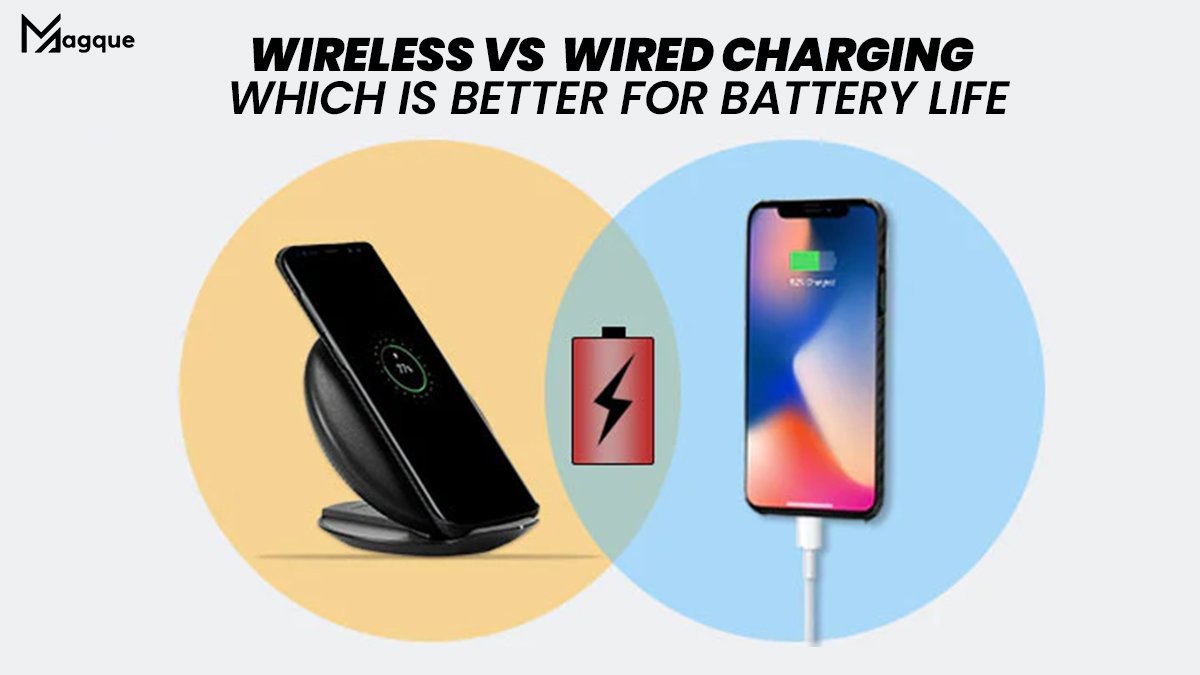Article Outline
- Introduction
- Understanding Wireless Charging
- Understanding Wired Charging
- How Wireless Charging Works
- How Wired Charging Works
- Pros and Cons of Wireless Charging
- Pros of Wireless Charging
- Cons of Wireless Charging
- Pros and Cons of Wired Charging
- Pros of Wired Charging
- Cons of Wired Charging
- Impact on Battery Life
- Wireless vs. Wired Charging Speed
- Compatibility and Convenience
- Environmental Considerations
- Factors Affecting Battery Health
- Tips for Battery Life Optimization
- Conclusion
- Frequently Asked Questions (FAQs)
Wireless vs. Wired Charging – Which Is Better For Battery Life
In today’s fast-paced world, where mobile devices have become an integral part of our lives, the topic of battery life is of paramount importance. One of the common dilemmas smartphone users face is whether to opt for wireless charging or stick with the traditional wired method. This article aims to provide you with a comprehensive analysis to help you make an informed decision.
Introduction
As technology advances, so do charging methods. Wireless charging, a relatively new entrant, offers convenience, while wired charging has been a reliable choice for years. Let’s delve into the details of these two options.
Understanding Wireless Charging
Wireless charging, also known as inductive charging, is a method that allows you to charge your device without physically plugging it into a charger. It relies on electromagnetic fields to transfer power from the charging pad to your device. This method is often found in modern smartphones and smartwatches.
Understanding Wired Charging
On the other hand, wired charging involves using a cable to connect your device to a power source. It’s the most traditional and widely used method for charging electronic devices.
How Wireless Charging Works
Wireless charging pads contain coils that generate electromagnetic fields. When you place your device on the pad, the coil in your device resonates with the coil in the pad, creating an electric current, which then charges your device.
How Wired Charging Works
Wired charging is a direct connection method. The cable connects your device to the power source, allowing the flow of electricity to charge the battery.
Pros and Cons of Wireless Charging
Pros of Wireless Charging
- Convenience: No need to fumble with cables.
- Reduced Wear and Tear: No physical connectors to wear out.
- Aesthetic Appeal: Minimalist and clutter-free.
- Ease of Use: Just place your device on the pad.
Cons of Wireless Charging
- Slower Charging: Typically slower than wired charging.
- Heat Generation: Can generate more heat, affecting battery life.
- Compatibility: Not all devices support wireless charging.
Pros and Cons of Wired Charging
Pros of Wired Charging
- Faster Charging: Generally faster than wireless charging.
- Universal Compatibility: Works with most devices.
- Stable Charging: Less susceptible to interruptions.
Cons of Wired Charging
- Cable Management: Can be cumbersome.
- Wear and Tear: Connectors can degrade over time.
Impact on Battery Life
The choice of charging method can have an impact on battery life. To understand this, it’s essential to consider the pros and cons discussed above.
Wireless vs. Wired Charging Speed
Wired charging is known for its faster charging speeds. If you’re in a hurry, wired charging is the way to go. On the other hand, wireless charging may be more suitable for overnight charging or when convenience is the top priority.
Compatibility and Convenience
Wireless charging technology is evolving, but not all devices are compatible. Wired charging, on the other hand, is universally compatible, making it a more convenient choice for those with multiple devices.
Environmental Considerations
Wired charging is considered more environmentally friendly, as it tends to be more energy-efficient. Wireless charging pads may consume more power due to standby energy consumption.
Factors Affecting Battery Health
Battery health depends on various factors, including temperature, charge cycles, and charging habits. Both wireless and wired charging can impact these factors differently.
Tips for Battery Life Optimization
Regardless of your charging method, there are several universal tips for optimizing battery life. These include maintaining a moderate battery level, avoiding extreme temperatures, and not overcharging.
Conclusion
In the battle of wireless vs. wired charging, there’s no clear winner. It ultimately depends on your priorities. If speed and compatibility are crucial, wired charging is your go-to option. For a clutter-free, convenient experience, wireless charging is a viable choice. In any case, the key to extending your battery’s life is to practice good charging habits. Visit Here :- How To Wirelessly Connect A Surface Tablet To A TV
Frequently Asked Questions (FAQs)
-
Is Wireless Charging Bad for Battery Life?
- It may generate more heat, which can affect battery health. However, if used correctly, it shouldn’t significantly impact battery life.
-
Can Wireless Charging Damage my Phone?
- No, it shouldn’t damage your phone if you use a reputable wireless charger.
-
Is it Safe to Leave my Phone on the Wireless Charger Overnight?
- Yes, most wireless chargers are designed to stop charging once the battery is full, making it safe for overnight charging.
-
Do all Phones Support Wireless Charging?
- No, not all phones have wireless charging capabilities. Check your device’s specifications to confirm.
-
How often Should I Charge my Phone to Maximize Battery Life?
- Avoid letting your battery drop to extremely low levels, and don’t overcharge. A good practice is to keep it between 20% and 80% charge for optimal battery health.
In conclusion, the choice between wireless and wired charging ultimately boils down to your individual needs and preferences. Consider the speed, compatibility, and convenience factors, and always practice good charging habits to maximize your battery life.













